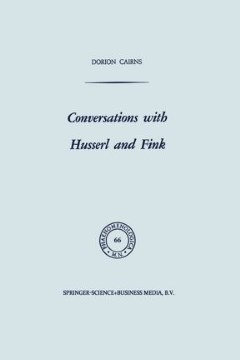Conversation with Husserl and Fink, 28/9/31
pp. 36-37
Abstract
Husserl has been working on what he calls the Doppel-Zeitigung 〈double temporalization〉 of the Erlebnisstrom 〈stream of mental processes〉. In the first place we have the objective temporalization, in the hyletic data and the objects which appear through them. This is a matter of retention and Erfüllung 〈fulfillment〉 of anticipation. In the second place we have the Zeitigung 〈temporalization〉 of the acts, the Ich-Ströme 〈streams of the ego〉 which are directed to the objects. These entities are indeed extended in time, and are related to their temporal objects, but may be said to stretch out as the objects do not. Husserl gave as an example the carrying out of an act of inference. The premiss as object is past when the conclusion has become the object. Still the act of positing the premiss remains present, temporally unmodified. The ego-acts and the ego as personalized become temporalized, but over against the stream with its past-present-future structure, and distinguished from the acts as similarly — though not precisely similarly — temporalized, we find the ego as "Nuncstelle" 〈nunc-locus, now-locus〉, which is always "present" and has its whole life over against it in a variety of rnodalizations. Even the "now" is to be distinguished, as part of the time stream, from the ego as Nuncstelle. The latter is not temporalized, is always there, has no past.
Publication details
Published in:
Cairns Dorion (1976) Conversations with Husserl and Fink. Den Haag, Nijhoff.
Pages: 36-37
DOI: 10.1007/978-94-015-6890-6_22
Full citation:
Cairns Dorion (1976) Conversation with Husserl and Fink, 28/9/31, In: Conversations with Husserl and Fink, Den Haag, Nijhoff, 36–37.


